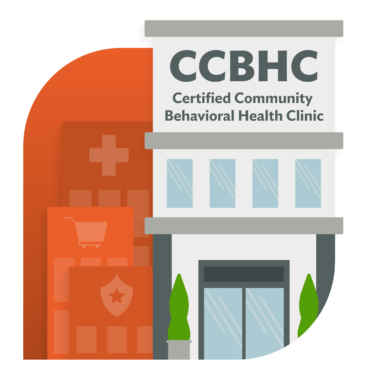Washington, D.C. (September 12, 2024) — As Congress returned from its August recess, the National Council for Mental Wellbeing, along with 70 other national, state and local organizations across the country, sent a letter urging lawmakers to include critical, adequate funding for key mental health and substance use programs as the House and Senate work to consolidate the fiscal year (FY) 2025 Labor, Health and Human Services, Education, and Related Agencies appropriations bill.
“Investments to improve access to comprehensive mental health and substance use care must remain a priority,” National Council for Mental Wellbeing President and CEO Chuck Ingoglia said. “As both chambers begin to work out the differences in their respective bills, it’s critical to remember that lives are at stake. Increasing funding — or at a minimum, maintaining funding — for programs that are proven to expand access to care helps ensure we don’t lose ground in addressing the ongoing mental health and substance use crises and that people don’t fall through the cracks.
“We thank lawmakers for giving these issues the attention they deserve and urge them to fund these programs to allow more people to access the care they need, when and where they need it.”
In particular, the letter emphasized widespread support for adopting the Senate’s funding level for Certified Community Behavioral Health Clinics (CCBHCs), keeping level funding for Primary and Behavioral Health Care Integration Grants, and increasing funding for the Substance Use Prevention, Treatment and Recovery Services Block Grant and the Community Mental Health Service Block Grant.
“As the nation continues to face an urgent mental health crisis, strong federal investment in effective programs that address suicide prevention, mental health and substance use is critical,” Laurel Stine, J.D., M.A., Executive Vice President and Chief Policy Officer at the American Foundation for Suicide Prevention (AFSP) said. “In 2022, nearly 50,000 Americans died by suicide and an estimated 1.6 million attempted to take their lives. These troubling trends underscore the urgent need for funding that helps address risk factors and promote access to mental health and substance use resources and services. As Congress deliberates the FY 2025 budget, AFSP urges lawmakers to provide the highest funding levels possible for key programs in the Labor HHS bill. These investments will help save lives.”
The letter comes on the heels of a bipartisan effort led by Reps. Doris Matsui (D-Calif.) and Marc Molinaro (R-N.Y.) to continue funding mental health awareness training, which helps first responders and other key professionals better recognize the signs and symptoms of mental health or substance use crises.
Maintaining, and increasing where possible, investments in mental health and substance use services like these not only mitigates the serious, personal costs to individuals and families in our country, but it also supports staving off financial costs in other areas. It is estimated that every dollar invested into early care and treatment for mental health and substance use challenges returns between $2 and $10 in health, criminal justice, education and economic savings.
About The National Council
Founded in 1969, the National Council for Mental Wellbeing is a membership organization that drives policy and social change on behalf of over 3,400 mental health and substance use treatment organizations and the more than 10 million children, adults and families they serve. We advocate for policies to ensure equitable access to high-quality services. We build the capacity of mental health and substance use treatment organizations. And we promote greater understanding of mental wellbeing as a core component of comprehensive health and health care. Through our Mental Health First Aid (MHFA) program, we have trained more than 4 million people in the U.S. to identify, understand and respond to signs and symptoms of mental health and substance use challenges.
Media Contact
Sophia Majlessi
Media@TheNationalCouncil.org
202-621-1631



